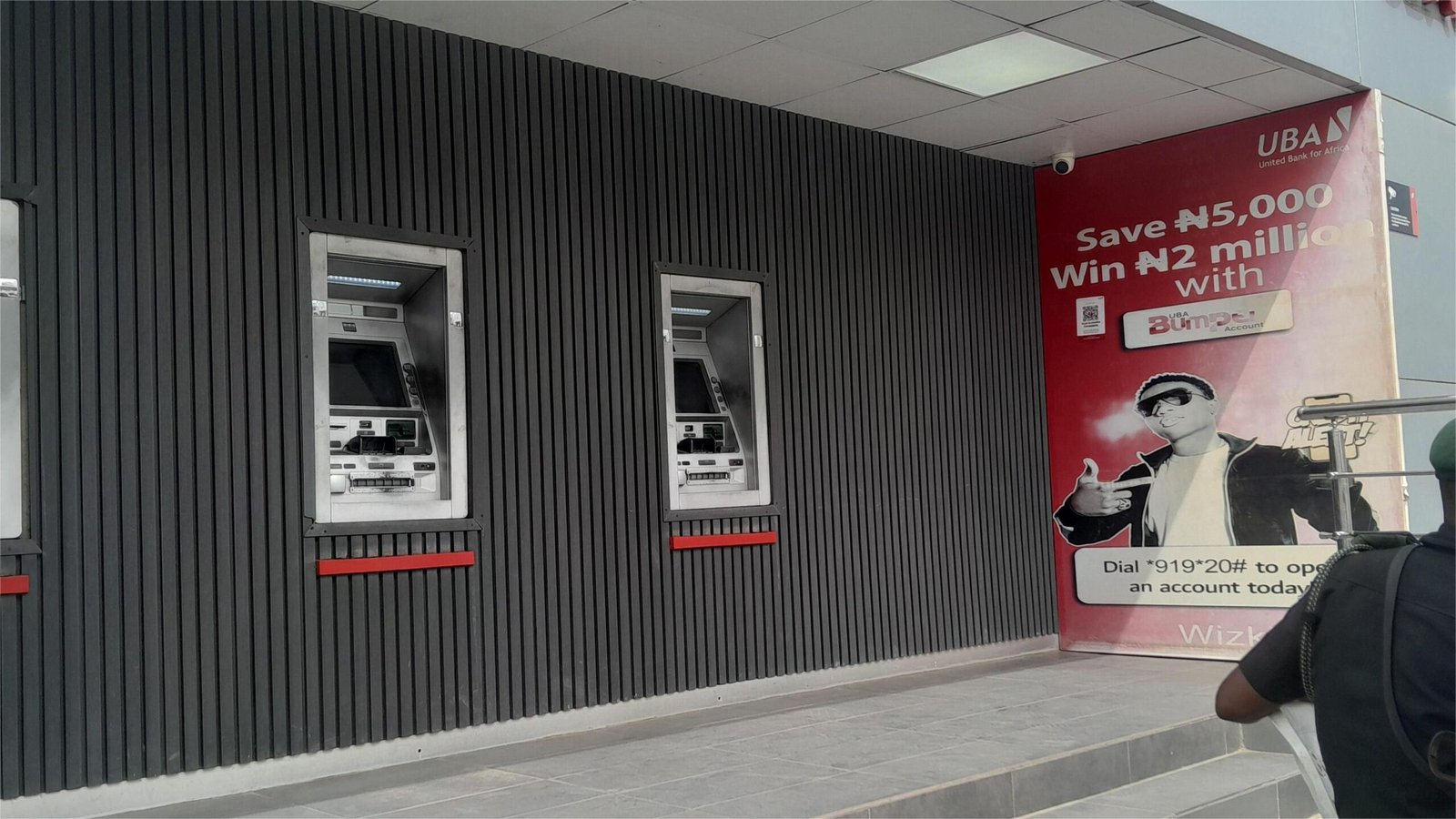In Nigeria, the struggle for cash has become a daily ordeal, a stark reminder of the fragility of trust in the country’s banking system. As the sun rises over the bustling streets of Abuja, the hum of frustration echoes from the Automated Teller Machines (ATMs) that line the sidewalks. For millions of Nigerians, these machines have transformed from symbols of financial freedom into barriers that stand between them and their hard-earned money. The Central Bank of Nigeria (CBN) has imposed hefty fines on banks for their failure to provide adequate cash, yet Gom Mirian, who visited some of the banks in the Abuja metropolis during the weekend reported that the reality remains unchanged: the cash crisis continues to grip the nation, leaving citizens feeling betrayed and helpless.
The Genesis of the Crisis
The cash insufficiency that has plagued Nigeria’s banking sector for over two years can be traced back to the controversial Naira redesign policy initiated during the tenure of former CBN Governor Godwin Emefiele. The policy aimed to curb inflation and promote a cashless economy, but it inadvertently triggered a severe liquidity crisis. As the CBN imposed restrictions on cash circulation, banks struggled to meet the demands of their customers, leading to widespread frustration and anger.
In a recent enforcement action, the CBN levied fines totaling N1.35 billion on nine commercial banks for failing to ensure cash availability during the festive season. Each bank was penalised N150 million for non-compliance with cash distribution guidelines, a move that was intended to restore public confidence in the banking system. However, the reality on the ground tells a different story.
The Unfolding Drama at ATMs
Despite the CBN’s efforts, the situation at ATMs remains dire. A visit to various banks in Abuja reveals a grim picture. Customers line up, their faces etched with disappointment and anxiety, as they await their turn to withdraw cash. Yet, the experience is anything but seamless.
Grace, a frustrated customer at an ECO Bank ATM, recounts her ordeal: “I have a UBA account, and every time I try to withdraw, I am allowed only N5,000 per transaction. After three withdrawals, they charge me N65 as a fee. It’s frustrating.”
She added that if she goes to the ATMs belonging to her bank, she can withdraw as much as N40,000 per withdrawal but a non-customer can only withdraw N10,000 per withdrawal from the same ATM. “The privilege I enjoy in my bank, I don’t enjoy it in other banks. If I go to the bank (name withheld) across the road, their customers can withdraw as much as N50,000, but their system can only allow me to withdraw just N10,000.”
The stark reality of cash rationing becomes evident as Grace compares her experience with that of other bank customers. “If I go to my bank, I can withdraw as much as N40,000, but a non-customer can only withdraw N10,000 from the same ATM. It’s like they’re punishing us for not being their customers,” she laments.
This discriminatory practice is not isolated. At Access Bank’s ATMs, non-account holders face similar restrictions, allowing only N5,000 per withdrawal.
Similar complaints echoed from Access Bank’s ATMs in Wuse Market. Non-Access bank account holders were permitted only N5,000 per withdrawal, forcing them to make multiple transactions just to access a reasonable amount of money. This practice of rationing cash by banks not only inconveniences customers but also adds to the widespread distrust of the banking system.
A security man at the gate of the bank after asking our correspondent who visited the bank if she wanted to withdraw, further asked what amount she wanted to withdraw and whether she was a customer of the bank. “If you have our bank ATM, you can withdraw as much as N50,000 at once, but if you are holding the ATM of other banks, you can only withdraw N5,000,” he said.
He also told our correspondent that it is the policy of the bank. “All the banks are operating that way. There is no cash, especially at weekends when people want money to buy in the market. That is why they give priority to their customers”. According to him, the ATMs have been programmed to function that way. “This has been like this since the Christmas period, and there is nothing we can do about it unless the bank management decides to change the policy. The IT people will reprogramme the machines accordingly,” the security man, who simply gave his name as Abel, said.
‘You won’t see anything there’
A woman loudly told our correspondent while approaching an empty ATM at Wuse Market writing Fidelity Bank on cautioning her not to insert her debit card in the machine saying, ” Don’t try your card there you won’t see anything including your card.”
A System in Disarray
The frustrations extend beyond withdrawal limits. Customers at Zenith Bank’s ATMs report machines swallowing their cards without dispensing cash. “I tried to complain, but they told me to go to my bank. That’s the last thing anyone needs when you’re already facing a cash crisis,” says Benson, a stranded customer. The sense of betrayal is palpable as customers feel abandoned by the very institutions that are supposed to safeguard their finances.
The frustrations are not limited to customers struggling to access their cash; they also extend to those facing even more inconvenient situations. At the First Bank ATMs at Bonligo Hotel, in the Central Business area in Abuja, customers voiced their concerns about the frequent non-availability of funds in the machines. “I came here because I thought the ATMs would work, but none of them have any money. This is becoming a pattern, and no one is doing anything about it,” lamented an editor for an online publication, who also suffered the misfortune of having his debit card swallowed by one of the ATMs.
The CBN’s Response
In response to the ongoing crisis, CBN Governor Olayemi Cardoso has urged banks to comply with cash distribution policies or face severe penalties. “Our focus remains on fostering trust, ensuring stability, and guaranteeing seamless cash circulation across the financial system,” Cardoso stated at the Annual Bankers’ Dinner of the Chartered Institute of Bankers of Nigeria (CIBN). However, the effectiveness of these warnings remains to be seen, as customers continue to experience the same frustrations.
The CBN has also called on bank customers to report any difficulties encountered while withdrawing cash. “Effective December 1, 2024, customers are encouraged to report any difficulties withdrawing cash from bank branches or ATMs directly to the CBN,” Cardoso announced. This initiative aims to enhance accountability within the banking sector, but many remain sceptical about its potential impact.
The Impact on Daily Life
The cash crisis has far-reaching implications for everyday life in Nigeria. Yusuf Saliusu, a Point-of-Sale (PoS) operator in Gwarinpa, shares his strategy for sourcing cash: “I have 10 ATM cards. First thing in the morning, I will comb the banks. Before I went to 10 banks, I would have gotten enough cash for my business for the day.” This arduous process highlights the lengths to which individuals must go to access their own money, further exacerbating the sense of chaos within the banking system.
As the CBN continues to grapple with the challenges of cash insufficiency, the Association of Senior Staff of Banks, Insurance, and Financial Institutions (ASSBIFI) has pointed fingers at the apex bank itself. President Olusoji Oluwole argues that the CBN has failed to meet the cash demands of commercial banks, leaving them at the mercy of retailers who profit from selling cash. “Banks have only two sources of cash: the CBN and retailers. The CBN has not met banks’ demands,” Oluwole explains.
A Call for Change
As the cash crisis persists, the need for systemic change within Nigeria’s banking sector becomes increasingly urgent. The CBN’s recent announcement of a new Compliance Department aims to address past challenges and restore confidence in the financial industry. “This department will be functional by the end of February,” Cardoso stated, emphasizing the importance of transparency and accountability.
However, for many Nigerians, these promises ring hollow in the face of daily struggles. The cash crisis has eroded trust in financial institutions, leaving citizens feeling vulnerable and disillusioned. As the sun sets over Abuja, the lines at ATMs remain long, and the frustrations of countless Nigerians echo through the streets—a stark reminder of the urgent need for reform in a system that has failed to serve its people.
In the land of Naira, the struggle for cash continues, and the question remains: When will the banking system rise to meet the needs of its citizens? Until then, the battle for access to cash will persist, a testament to the resilience of a people determined to reclaim their financial freedom.



